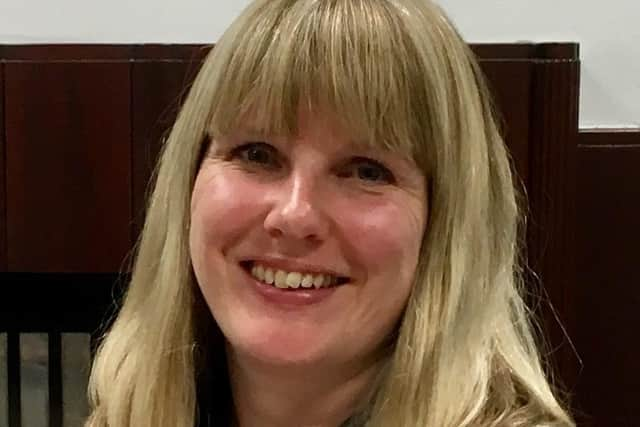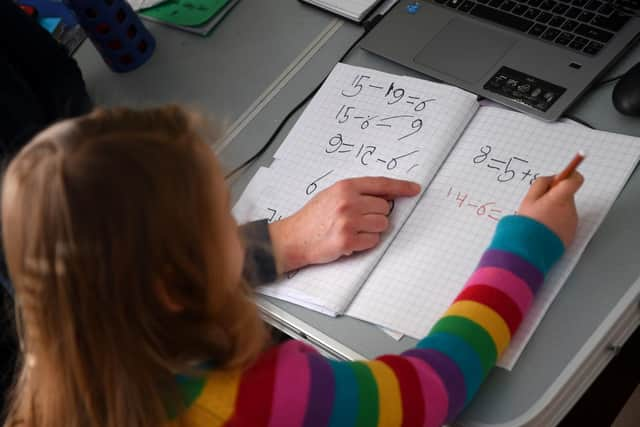No progress for city's children as university study reveals impact of lockdown learning in Leeds
and live on Freeview channel 276
Almost a quarter of children made no progress in communication and language while progress was also hampered when it came to personal, social and emotional development.
The findings are the interim results of an ongoing study into the effects of lockdown on 454 reception age children from 10 schools across Leeds.


Advertisement
Hide AdAdvertisement
Hide AdThe ICKLE (Impact of COVID on key learning and education) project, being carried out by academics from the University of Leeds, tracks the impact of the disruption to schooling during the first lockdown period.
It looked at four areas of the Early Years Foundation Stage Profile (EYFSP) - Mathematics, Literacy, Communication & language, and Personal, social & emotional development and found that children in reception during the first lockdown made less progress than expected in all the areas, but particularly in Literacy and Mathematics, where a third of children made no progress.
Compared to the 2019 averages, significantly fewer children achieved the expected levels, with the largest gap for Literacy.
Principal investigator Dr Hannah Nash, from the University of Leeds’ School of Psychology, said: “Disruptions to learning at reception level during the pandemic have left large groups of children showing a lack of progress in their education.


Advertisement
Hide AdAdvertisement
Hide Ad"A third of children made no progress at all in literacy and mathematics during the first lockdown. These stark results mean it is vital that this cohort of children and their families must be properly supported as they progress through primary school, as it is likely they will have greater and more varied needs.
"Schools must also be provided with sufficient time and resources to be able to do this.”
The majority of children in the sample (95 per cent) were at home during the March-June 2020 period of school disruption, and in June almost half of the children returned to school. In the best-case scenario, if schools reopened, reception children had missed around 7 weeks of normal schooling. In the worst-case scenario, this increased to 14 weeks.
In PSED 15.4 per cent made no progress, 65.3 per cent made some progress; 15.4 per cent made much; for Communication and Language, 24.4per cent made no progress; 62.7 per cent made some; 12.8 per cent made much; in Maths 33.4 per cent made no progress, 57.7 per cent made some and 8.9 per cent made much; Literacy findings showed 39.1 per cent made no progress, 50.2 per cent made some and 10.8 per cent made much.
Advertisement
Hide AdAdvertisement
Hide AdAs well has having a supportive family network that was conducive to learning at home, other factors have been attributed to the level of progress.
The report says in schools that provided more resources, children made more progress in EYFSP goals, in schools that provided new activities too often, children made less progress in EYFSP goals and the provision of hard copy reading books was strongly associated with better progress in reading book band levels.
Older children made more progress than younger children, children with special educational needs and disabilities made less progress as did children from more disadvantaged backgrounds.
Following the compiling of the report, the project has set out a series of recommendations that looks at 'catch-up' support and the 'expectations' of attainment.
Advertisement
Hide AdAdvertisement
Hide AdThe report says: "It is clear that the number of children requiring 'catch up' support extends beyond those from socio-economically disadvantaged backgrounds and those with SEND. Schools will need sufficient time and resources to fully support this cohort of children as they progress through primary school. In the event of future school disruption, we recommend that schools provide a range of resources, to allow families of young children to select those best fitting their needs, and more physical resources including hard copy reading books.
"A priority needs to be ensuring that children who would typically receive additional classroom support continue to receive some form of additional support during periods of home learning. This might mean increased investment in teaching assistants, developing a bank of differentiated resources that can be shared with home, and remote delivery of individual and small-group intervention programmes.
"Children who were in reception during the first round of school closures in Spring 2020 have significant gaps in the skills and knowledge that form the foundation for later learning. Consideration needs to be given to expectations of attainment in KS1: the focus should not be on moving these children along too quickly when there are gaps in their skills and knowledge that need to be filled."
The university based its findings upon requesting current data for children in year 1 and retrospective data from when the same children were in reception in March 2020, as survey of schools on their remote learning provision during the first lockdown and a survey of parents on their home learning experiences.
Advertisement
Hide AdAdvertisement
Hide AdThe research team has recently collected a second round of data concerning school provision, home learning and children's progress during the second lockdown in Winter 2020 and findings will be reported in due course.
Comment Guidelines
National World encourages reader discussion on our stories. User feedback, insights and back-and-forth exchanges add a rich layer of context to reporting. Please review our Community Guidelines before commenting.
